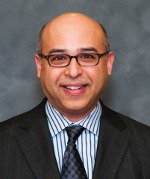 Most spine surgeons would say a successful surgery looks like this: lower postoperative pain scores, increased functional scores and images show a solid fusion; the patient isn't readmitted to the hospital and doesn't complain of any further complications.
Most spine surgeons would say a successful surgery looks like this: lower postoperative pain scores, increased functional scores and images show a solid fusion; the patient isn't readmitted to the hospital and doesn't complain of any further complications.
But that's not necessarily how patients would define "success." Patients are looking for a surgery that alleviates their pain, allows them to return to work and daily activities, and reduce or eliminate narcotics use. And they want all of this done in the most efficient and cost-effective way. Otherwise, they don't consider their procedure a success.
"It's important to understand the outcome from the patient's perspective as opposed to the traditional 30-day readmission rates and morbidity rates," says Zoher Ghogawala, MD, co-chair of Lahey Health's Comparative Effectiveness Research Institute. The data should also reflect both operative and nonoperative care. National spine organizations are engaged in efforts to create a spine patient outcomes registry. Smaller organizations, such as physician practices and hospitals are also engaged in data gathering efforts.
"The Lahey Hospital & Medical Center has funding from the Alan and Jackie Stuart Spine Research Center to work with the NASS registry to determine whether a patient navigator can improve outcomes for spinal disorders," says Dr. Ghogawala. "We have a trained medical professional helping patients sort out different options and referring them to specialists so the patients can be can be presented with a comprehensive array of treatment options as opposed to just the single provider."
The University of Wisconsin and Hospital for Special Surgery in New York City are also participating in the study to determine how well patient navigators work. "It's an innovative strategy for using a registry to determine whether specific clinical pathways or clinical navigators help patients determine the most appropriate spine care for their cases," says Dr. Ghogawala. "It will be interesting to see whether we'll have better outcomes and lower costs with this strategy."
One thing Dr. Ghogawala has noticed — with preliminary data — is patients' satisfaction appears greater when they are presented with broad options for care and not simply the options from one surgeon who will provide their services.
"I've also noticed that patients by and large trust their doctors, but they increasingly want to have concrete data about how successful their procedures are at their local facility," says Dr. Ghogawala. "They even want to know how successful their surgeon is with any particular procedure when they contemplate whether to have their surgery."
The particular questions that often come up in at Dr. Ghogawala's office include:
• How many days do I need to take off work for testing and visits after surgery?
• How much do I have to pay out-of-pocket for surgery?
• What do I have to pay for follow-up visits?
• Will I need someone else to take care of my children while I recover?
• Will I need a caretaker during the recovery period?
• When can I drive my car again?
Can data help with these questions?
"A lot of us in the healthcare profession, as well as patients, are being flooded with very high volumes of data that aren't necessarily relevant to what we are doing or what the patient's particular problems might be," says Dr. Ghogawala. "This is confusing and sometimes turns people off. What I ultimately think needs to happen is a database that's made very user-friendly so patients can directly interact with the data registries and learn more about their condition, possible treatment options and outcomes associated with those options."
Patient database creation would require significant work and effort in design to make it truly user-friendly for individuals. It would also take time and energy to ensure data is appropriately understood so patients can draw the right comparisons and conclusions.
"As we work with our registries, I think there will need to be significant improvement over the next five years to make sure patients get the information they need," says Dr. Ghogawala. "Ultimately patients need to be involved in the design and execution of registries. We don't typically think of patients being involved, but it needs to happen. The more information we put into the hands of individual patients and treating physicians, the better."

